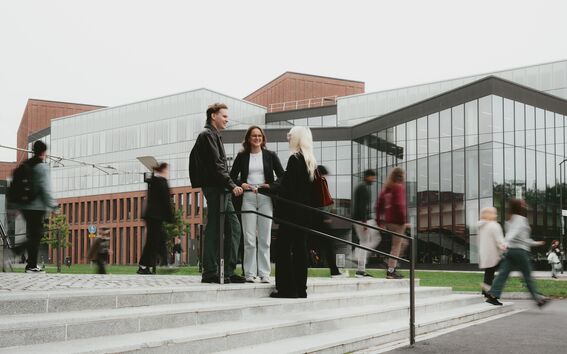What changes have you made to the GBE course?
One of the key changes I made this year was in the way group work was organized. In past years, I could organize various activities based in the auditorium, like a learning café activity to review for an exam. This year I had to organize activities that could be done by students online and on campus.
The online students were divided into breakout rooms in Zoom, and the ones on campus formed their own groups and did the work in study rooms and other spaces.
The “deliverable” for the group work needed to be easy to upload to MyCourses, so everyone could easily see the results. Usually that was in the form of slides that one or two students from the group would present to the whole class.
Discussion during the lecture also had to change – it was easy for students in the auditorium to ask questions, but those streaming the lecture needed to do so in the Zoom chat, which I would check several times during the session. Sometimes I asked online students to make a comment in class, and he/she would appear in Zoom on the big screen.
One element that I kept the same was the team presentations of cases from the textbook. Those went very well—the students on campus and those located around the world (eg Albania, Kazakhstan, Vietnam) delivered high quality presentations. The learning activity that was part of the presentation task was at times challenging, however, since the students were in three spaces. Several teams found that a Kahoot quiz was a fun and easy way to reach all the students.
How are the students adjusting/reacting to the hybrid course?
The students handled the situation well – and achieved the learning outcomes of the course very well.
One major assignment in the course is the individual paper due at the end and the students found very interesting topics to research – everything from Red Bull marketing strategy to FDI in countries like Venezuela or Nigeria. I enjoyed talking with the students about their paper topics, and it was reassuring that I could keep that traditional aspect of my course in spite of all the special circumstances due to COVID.












